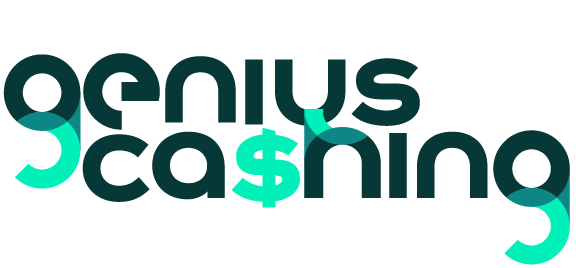The Top 5 Mistakes People Make When Buying Home Insurance

Buying home insurance is one of the most important financial decisions a homeowner can make. It provides essential protection against natural disasters, theft, and unexpected damages, ensuring that your investment remains secure.
Anúncios
However, many homeowners make costly mistakes when selecting a policy, often leaving them underinsured or paying for unnecessary coverage.
Understanding the most common mistakes when buying home insurance can help you avoid financial pitfalls and ensure that your home, belongings, and finances are fully protected.
This guide will walk you through five critical mistakes homeowners make, how to avoid them, and strategies to secure the right coverage for your needs.
1. Underestimating the True Value of Their Home
Many homeowners assume that their property’s market value is the same as its replacement cost, leading to a significant gap in coverage. Market value is what a home would sell for, while replacement cost is what it would take to rebuild it from the ground up.
Anúncios
Why This Mistake Happens
- Homeowners base their coverage on purchase price instead of rebuilding costs.
- They ignore inflation and rising material costs, which impact reconstruction expenses.
- Some policies exclude upgrades or renovations, leaving gaps in protection.
How to Avoid It
- Ask for an insurance estimate based on rebuilding costs rather than market value.
- Regularly update your policy to account for home improvements and rising construction costs.
- Work with an experienced agent to determine the accurate replacement cost of your home.
2. Choosing the Cheapest Policy Without Understanding Coverage
Saving money is important, but opting for the cheapest home insurance policy can leave you exposed to risks.
Some budget-friendly policies offer minimal coverage, meaning you might have to pay significant out-of-pocket costs if disaster strikes.
Common Coverage Gaps in Cheap Policies
- Limited liability protection – If someone is injured on your property, inadequate liability coverage can result in legal and medical expenses.
- Excluded natural disasters – Some policies don’t cover floods, earthquakes, or hurricanes, leaving homeowners vulnerable.
- Low personal property limits – High-value items like jewelry, electronics, and collectibles may require additional coverage.
How to Avoid It
- Review what is included and excluded in a policy before purchasing.
- Balance affordability with comprehensive coverage that meets your needs.
- Ask about policy endorsements to customize coverage for valuables and potential risks.
Read more about customizing your home insurance policy: The Importance of Disability Insurance: Protecting Your Income
3. Not Understanding Policy Exclusions
A common mistake homeowners make is assuming their insurance covers everything. Every policy has exclusions, and failing to understand them can lead to unexpected financial losses when filing a claim.
Typical Home Insurance Exclusions
- Flooding and earthquakes – Standard policies usually exclude these disasters.
- Mold and pest damage – Damage from termites, rodents, and mold is often not covered.
- Wear and tear – Home insurance is designed for sudden damages, not gradual deterioration.
How to Avoid It
- Carefully review policy exclusions before committing to a plan.
- Consider additional coverage for risks like flooding, earthquakes, or sewer backups.
- Ask your insurer about optional endorsements that fill coverage gaps.
4. Not Comparing Insurance Providers
Some homeowners purchase the first policy they find without shopping around. Insurance companies offer different rates, benefits, and customer service experiences, which means failing to compare options can lead to higher premiums and inadequate coverage.
Why Comparing Matters
- Different insurers offer different discounts, such as bundling home and auto insurance.
- Customer service varies, and choosing a company with a poor claims process can make disaster recovery stressful.
- Coverage details differ, and one insurer may provide more comprehensive protection than another.
How to Avoid It
- Get at least three quotes before deciding on a policy.
- Research customer reviews and claim satisfaction ratings of insurers.
- Ask about bundling discounts for home and auto insurance to save money.
Learn more about selecting the right insurance provider: The Ultimate Guide to Choosing the Right Insurance for Your Needs
5. Failing to Update Their Policy Over Time
Many homeowners buy home insurance and forget about it, assuming their coverage remains sufficient over the years. However, life changes, renovations, and inflation can impact how much coverage is needed.
Why Updating Your Policy is Essential
- Home renovations (e.g., adding a new room or upgrading appliances) increase your home’s value.
- Inflation drives up rebuilding costs, meaning your current policy may be outdated.
- Changes in personal assets (new furniture, electronics, or jewelry) may require additional personal property coverage.
How to Avoid It
- Review your policy annually to ensure it aligns with current home values.
- Notify your insurer about significant renovations or upgrades.
- Update personal property coverage to reflect any new valuable purchases.
Key Mistakes When Buying Home Insurance and How to Avoid Them
| Mistake | Why It’s a Problem | How to Fix It |
|---|---|---|
| Underestimating home value | Leads to insufficient coverage and out-of-pocket costs. | Use replacement cost rather than market value. |
| Choosing the cheapest policy | Often lacks coverage for natural disasters and liability protection. | Compare coverage options, not just price. |
| Ignoring policy exclusions | Can result in denied claims for floods, mold, or wear and tear. | Read exclusions carefully and consider extra coverage. |
| Not comparing providers | Higher premiums and poor claims service. | Get multiple quotes and check reviews. |
| Failing to update the policy | Inflation and home upgrades can leave you underinsured. | Review policy annually and update coverage. |
Smart Choices for Home Insurance Protection
Avoiding these common mistakes when buying home insurance ensures that your property, belongings, and finances remain protected.
Choosing the right policy isn’t just about price—it’s about securing comprehensive coverage that meets your needs.
By understanding policy exclusions, comparing providers, and updating your coverage over time, you can make informed decisions and prevent costly gaps in protection.
FAQ – Frequently Asked Questions
1. What is the biggest mistake homeowners make when buying insurance?
Many underestimate their home’s replacement cost, leading to insufficient coverage.
2. How often should I update my home insurance policy?
It’s best to review and update your policy annually, especially after renovations or major purchases.
3. Does home insurance cover natural disasters?
Standard policies typically exclude floods and earthquakes. Additional coverage may be required.
4. How can I reduce my home insurance premiums?
You can lower costs by bundling insurance policies, installing security systems, and maintaining a good credit score.
5. Is it worth getting additional coverage for valuables?
Yes, especially for jewelry, collectibles, and high-end electronics, which may exceed standard coverage limits.
